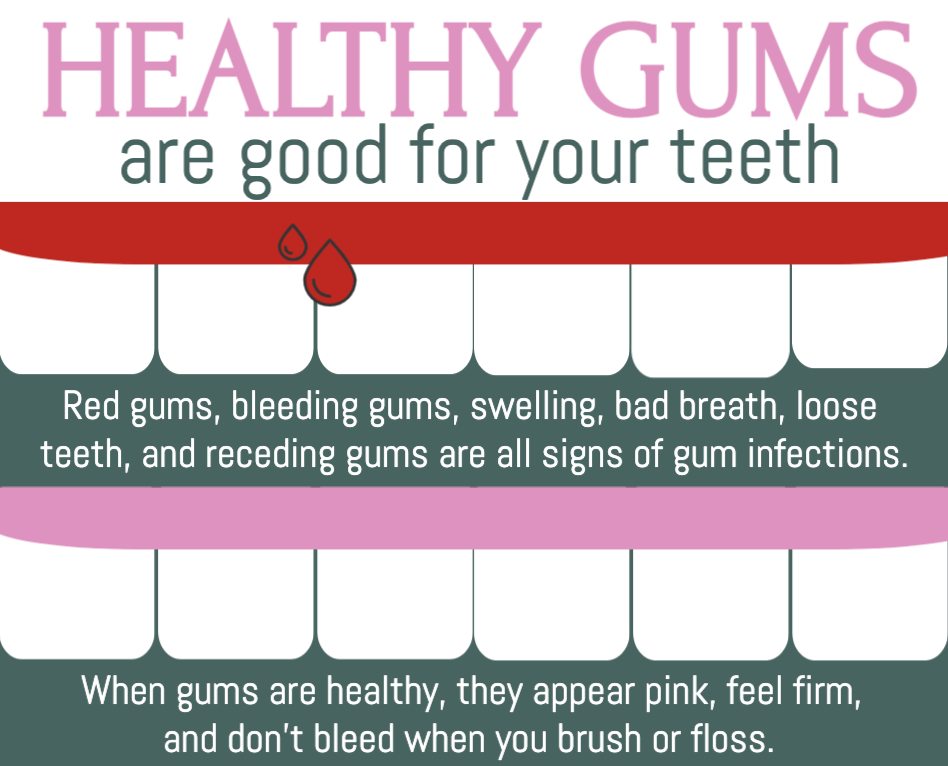Healthy Gums Are Good for Your Teeth!

Repair Cavities With Tooth-Colored Composite Fillings
6 Tips for Easing Sleep Apnea Symptoms
People may joke about your loud snoring, but sleep apnea is no joke. Research has linked the disorder to many health problems, including high blood pressure, diabetes, and Alzheimer’s disease. At our Fitchburg, MA office we treat mild to moderate cases of apnea with a custom-made oral device you wear while you sleep. We will also recommend lifestyle changes to lessen your sleep apnea symptoms and improve your overall health.
In addition to snoring, symptoms of sleep apnea include insomnia, dry mouth, irritability, excessive fatigue during the day, and difficulty focusing on tasks. These symptoms not only rob you of rest but negatively affect your life in many ways – and the lives of those around you as well.
To schedule a sleep apnea consultation with Dr. Brian McDowell, call us today at 978-343-4031. He can help you get a sleep screening, if needed, and fit you for an oral appliance that allows you to get a good night’s rest.
It’s all about the airway. People who suffer from obstructive sleep apnea experience brief interruptions in breathing multiple times a night when their airway becomes blocked. An appliance gently moves your jaw into a position that keeps your airway clear so you can breathe easily.
Many patients find an oral appliance preferable to a CPAP machine, another commonly prescribed treatment for sleep apnea. In addition to wearing an appliance, you can minimize your sleep apnea symptoms by following our tips below.
Quit Smoking
Smokers are three times more likely than non-smokers to suffer from obstructive sleep apnea. Cigarettes are an irritant for your upper airway, soft palate, throat, tongue, and uvula. Over time these areas become inflamed, making you more susceptible to airway blockage.Sleep On Your Side
Sleeping on your back often makes sleep apnea symptoms worse because your tongue and soft palate tend to relax more when you sleep this way.
You can try the Stop Snoring T-Shirt, which sells for about $22 on Amazon. It’s a t-shirt with a zippered pocket on the back. When you put a tennis ball (or similar object) in the pocket, it will make it uncomfortable enough to keep most people off their backs. More than three quarters of the 278 people who have reviewed it on Amazon gave the product four or five stars.
Drop Some Pounds
According to the National Heart, Lung, and Blood Institute (NHLBI), more than half of people who suffer from sleep apnea are overweight. Fatty deposits in your neck can impair breathing by making your airway more prone to collapse. In fact, a large neck size (16 inches or larger for women, 17 inches or larger for men) is a common sign you may have sleep apnea.
To lose weight, we suggest making dietary changes that will help you feel full. Drink lots of water and increase the amount of high-fiber foods you consume. Good choices include fresh fruits and vegetables, nuts, and seeds. Bonus: fruits and veggies like apples and carrots are also good for your dental health. They scrub away remnants of other foods from your teeth, almost like a natural “toothbrush.”
Get More Exercise
Adding exercise to your daily routine also will help you lose weight. In addition, regular exercise helps break up nasal congestion that can worsen sleep apnea symptoms. Try to get at least a half hour of moderate activity every day. You won’t need fancy equipment or a gym membership; a brisk walk is a great way to get moving.
Keep Your Nose Clear
Allergies or other nasal obstructions can also worsen sleep apnea symptoms. Use antihistamines, nasal strips, or other products to help keep your nasal passages clear. You may also want to elevate your head while sleeping, which can help clear congestion and prevent acid reflux, another condition often associated with sleep apnea.
Some people use a humidifier in their bedroom to encourage their sinuses to drain. This makes it easier to breathe through your nose. Applying a product like Vicks VapoRub to your chest before bedtime also will help open your airway.
Reduce Use of Sedatives & Alcohol
Avoid alcohol and sedatives before bedtime, if possible. Both relax muscles, including those in your throat. Sleeping pills are especially likely to worsen sleep apnea symptoms. In addition to relaxing muscles, they make it more difficult to awaken. Your body will need to send an even stronger signal of respiratory distress to your brain to rouse you enough to open your airway.
Tired of experiencing sleep apnea symptoms? Call us today at 978-343-4031 to schedule a consultation at Brian C. McDowell, DDS.
Save Your Tooth With a Dental Crown
If you have a damaged tooth, you can restore it with a dental crown. A beautiful new crown is an excellent way to save your smile and get your confidence back. Dr. McDowell is a highly skilled dentist you can trust with your smile, no matter what condition it’s in.
Call us today at 978-343-4031 to get your smile back. You can also request an appointment online. Be sure to watch this short video that explains how a crown works.
